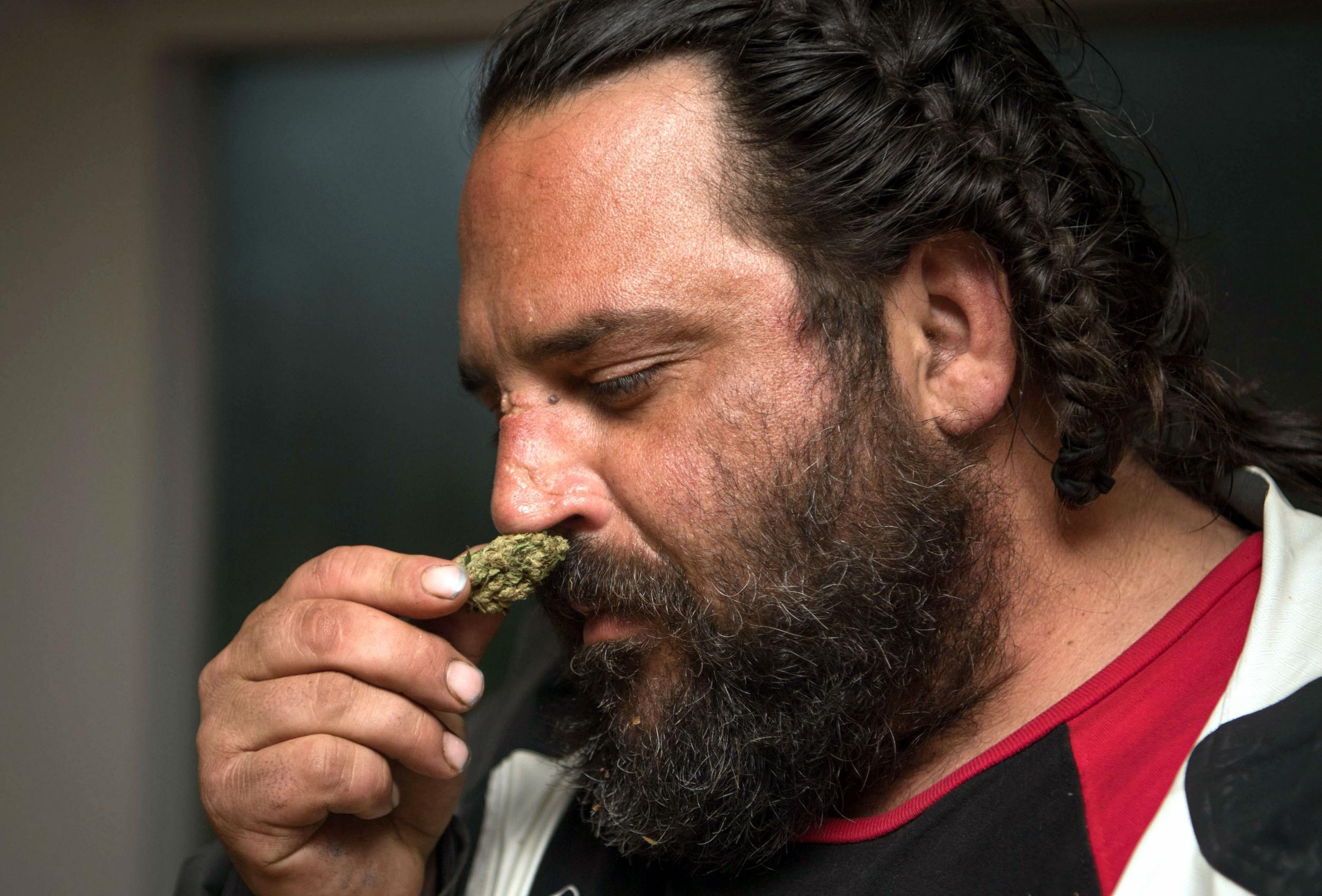Legalising marijuana will boost California's economy by $5 billion, study finds
A measure is passing through the state legislature

Your support helps us to tell the story
From reproductive rights to climate change to Big Tech, The Independent is on the ground when the story is developing. Whether it's investigating the financials of Elon Musk's pro-Trump PAC or producing our latest documentary, 'The A Word', which shines a light on the American women fighting for reproductive rights, we know how important it is to parse out the facts from the messaging.
At such a critical moment in US history, we need reporters on the ground. Your donation allows us to keep sending journalists to speak to both sides of the story.
The Independent is trusted by Americans across the entire political spectrum. And unlike many other quality news outlets, we choose not to lock Americans out of our reporting and analysis with paywalls. We believe quality journalism should be available to everyone, paid for by those who can afford it.
Your support makes all the difference.The economy of California - poised to create a market for legal marijuana - could see its economy boosted by as much as $5bn, according to a new study.
The report by the University of California Agricultural Issues Centre, says that the legalisation of the drug will provide the state a further reason for tourists - or at least some tourists - to visit.
Yet it also warns that around 30 per cent of people who use cannabis may remain in the illegal market, in order to avoid the financial impact of regulations that require marijuana to be tested, tracked and taxed at 15 per cent of its retail value.
The Los Angeles Times said that state officials developing the regulations, hope they will be able to persuade the majority of cannabis users to go through the legal market.
Lori Ajax, director of the state Bureau of Marijuana Control, which commissioned the report, told the newspaper: “It’s going to take some time. While it’s unlikely that everyone will come into the regulated market on Day One, we plan to continue working with stakeholders as we move forward to increase participation over time.”
The survey has calculated that once California, which has the word's fifth largest economy, adopts the new regulations, legal recreational cannabis use will make up 61.5 per cent of the total market, illegal cannabis will account for 29.5 per cent, with nine per cent coming from legal medical marijuana.
“We projected that when legally allowed, slightly more than half of the demand currently in the illegal adult-use segment will quickly move to the legal adult-use segment to avoid the inconvenience, stigma, and legal risks of buying from an unlicensed seller,” says the study.
In 2012, the states of Colorado and Washington because the first in the US to pass laws legalising recreational cannabis. Research released last year found that it had contributed $2.39bn to Colorado’s economy in 2015.
The report from the Marijuana Policy Group, a Denver-based economic and market research firm, said it had also created more than 18,000 jobs.
“By legalising, the state has gained a windfall more or less for free,” Miles Light, one of the report’s authors said.
Cannabis remains illegal under federal law.
Join our commenting forum
Join thought-provoking conversations, follow other Independent readers and see their replies
Comments